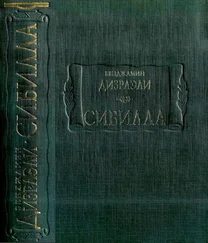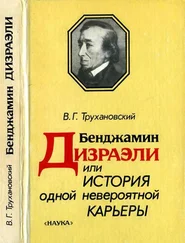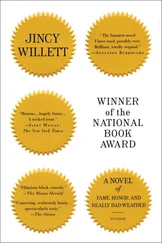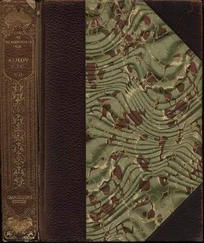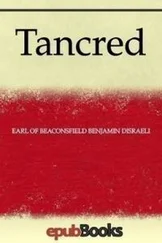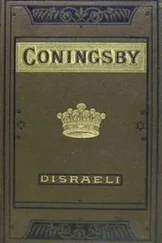But the other great whig families who had obtained this honour, and who had done something more for it than spoliate their church and betray their king, set up their backs against this claim of the Egremonts. The Egremonts had done none of the work of the last hundred years of political mystification, during which a people without power or education, had been induced to believe themselves the freest and most enlightened nation in the world, and had submitted to lavish their blood and treasure, to see their industry crippled and their labour mortgaged, in order to maintain an oligarchy, that had neither ancient memories to soften nor present services to justify their unprecedented usurpation.
How had the Egremonts contributed to this prodigious result? Their family had furnished none of those artful orators whose bewildering phrase had fascinated the public intelligence; none of those toilsome patricians whose assiduity in affairs had convinced their unprivileged fellow–subjects that government was a science, and administration an art, which demanded the devotion of a peculiar class in the state for their fulfilment and pursuit. The Egremonts had never said anything that was remembered, or done anything that could be recalled. It was decided by the Great Revolution families, that they should not be dukes. Infinite was the indignation of the lay Abbot of Marney. He counted his boroughs, consulted his cousins, and muttered revenge. The opportunity soon offered for the gratification of his passion.
The situation of the Venetian party in the wane of the eighteenth century had become extremely critical. A young king was making often fruitless, but always energetic, struggles to emancipate his national royalty from the trammels of the factious dogeship. More than sixty years of a government of singular corruption had alienated all hearts from the oligarchy; never indeed much affected by the great body of the people. It could no longer be concealed, that by virtue of a plausible phrase power had been transferred from the crown to a parliament, the members of which were appointed by an extremely limited and exclusive class, who owned no responsibility to the country, who debated and voted in secret, and who were regularly paid by the small knot of great families that by this machinery had secured the permanent possession of the king's treasury. Whiggism was putrescent in the nostrils of the nation; we were probably on the eve of a bloodless yet important revolution; when Rockingham, a virtuous magnifico, alarmed and disgusted, resolved to revive something of the pristine purity and high–toned energy of the old whig connection; appealed to his "new generation" from a degenerate age, arrayed under his banner the generous youth of the whig families, and was fortunate to enlist in the service the supreme genius of Edmund Burke.
Burke effected for the whigs what Bolingbroke in a preceding age had done for the tories: he restored the moral existence of the party. He taught them to recur to the ancient principles of their connection, and suffused those principles with all the delusive splendour of his imagination. He raised the tone of their public discourse; he breathed a high spirit into their public acts. It was in his power to do more for the whigs than St John could do for his party. The oligarchy, who had found it convenient to attaint Bolingbroke for being the avowed minister of the English Prince with whom they were always in secret communication, when opinion forced them to consent to his restitution, had tacked to the amnesty a clause as cowardly as it was unconstitutional, and declared his incompetence to sit in the parliament of his country. Burke on the contrary fought the whig fight with a two–edged weapon: he was a great writer; as an orator he was transcendent. In a dearth of that public talent for the possession of which the whigs have generally been distinguished, Burke came forward and established them alike in the parliament and the country. And what was his reward? No sooner had a young and dissolute noble, who with some of the aspirations of a Caesar oftener realised the conduct of a Catiline, appeared on the stage, and after some inglorious tergiversation adopted their colours, than they transferred to him the command which had been won by wisdom and genius, vindicated by unrivalled knowledge, and adorned by accomplished eloquence. When the hour arrived for the triumph which he had prepared, he was not even admitted into the Cabinet, virtually presided over by his graceless pupil, and who, in the profuse suggestions of his teeming converse, had found the principles and the information which were among the chief claims to public confidence of Mr Fox.
Hard necessity made Mr Burke submit to the yoke, but the humiliation could never be forgotten. Nemesis favours genius: the inevitable hour at length arrived. A voice like the Apocalypse sounded over England and even echoed in all the courts of Europe. Burke poured forth the vials of his hoarded vengeance into the agitated heart of Christendom; he stimulated the panic of a world by the wild pictures of his inspired imagination; he dashed to the ground the rival who had robbed him of his hard–earned greatness; rended in twain the proud oligarchy that had dared to use and to insult him; and followed with servility by the haughtiest and the most timid of its members, amid the frantic exultation of his country, he placed his heel upon the neck of the ancient serpent.
Among the whig followers of Mr Burke in this memorable defection, among the Devonshires and the Portlands, the Spencers and the Fitzwilliams, was the Earl of Marney, whom the whigs would not make a duke.
What was his chance of success from Mr Pitt?
If the history of England be ever written by one who has the knowledge and the courage, and both qualities are equally requisite for the undertaking, the world would be more astonished than when reading the Roman annals by Niebuhr. Generally speaking, all the great events have been distorted, most of the important causes concealed, some of the principal characters never appear, and all who figure are so misunderstood and misrepresented, that the result is a complete mystification, and the perusal of the narrative about as profitable to an Englishman as reading the Republic of Plato or the Utopia of More, the pages of Gaudentio di Lucca or the adventures of Peter Wilkins.
The influence of races in our early ages, of the church in our middle, and of parties in our modern history, are three great moving and modifying powers, that must be pursued and analyzed with an untiring, profound, and unimpassioned spirit, before a guiding ray can be secured. A remarkable feature of our written history is the absence in its pages of some of the most influential personages. Not one man in a thousand for instance has ever heard of Major Wildman: yet he was the soul of English politics in the most eventful period of this kingdom, and one most interesting to this age, from 1640 to 1688; and seemed more than once to hold the balance which was to decide the permanent form of our government. But he was the leader of an unsuccessful party. Even, comparatively speaking, in our own times, the same mysterious oblivion is sometimes encouraged to creep over personages of great social distinction as well as political importance.
The name of the second Pitt remains, fresh after forty years of great events, a parliamentary beacon. He was the Chatterton of politics; the "marvellous boy." Some have a vague impression that he was mysteriously moulded by his great father: that he inherited the genius, the eloquence, the state craft of Chatham. His genius was of a different bent, his eloquence of a different class, his state craft of a different school. To understand Mr Pitt, one must understand one of the suppressed characters of English history, and that is Lord Shelburne.
Читать дальше

